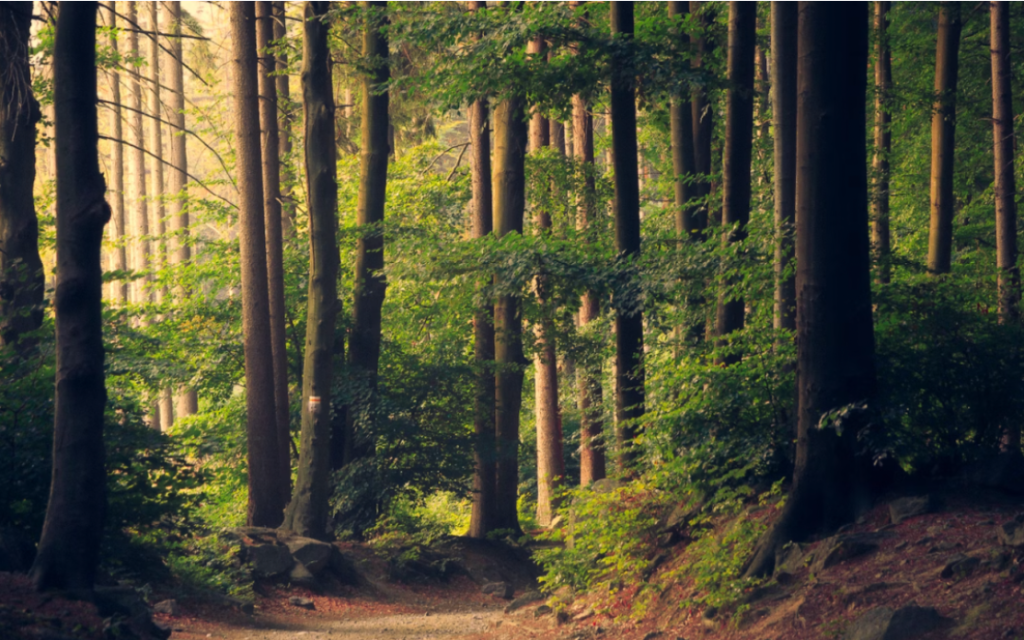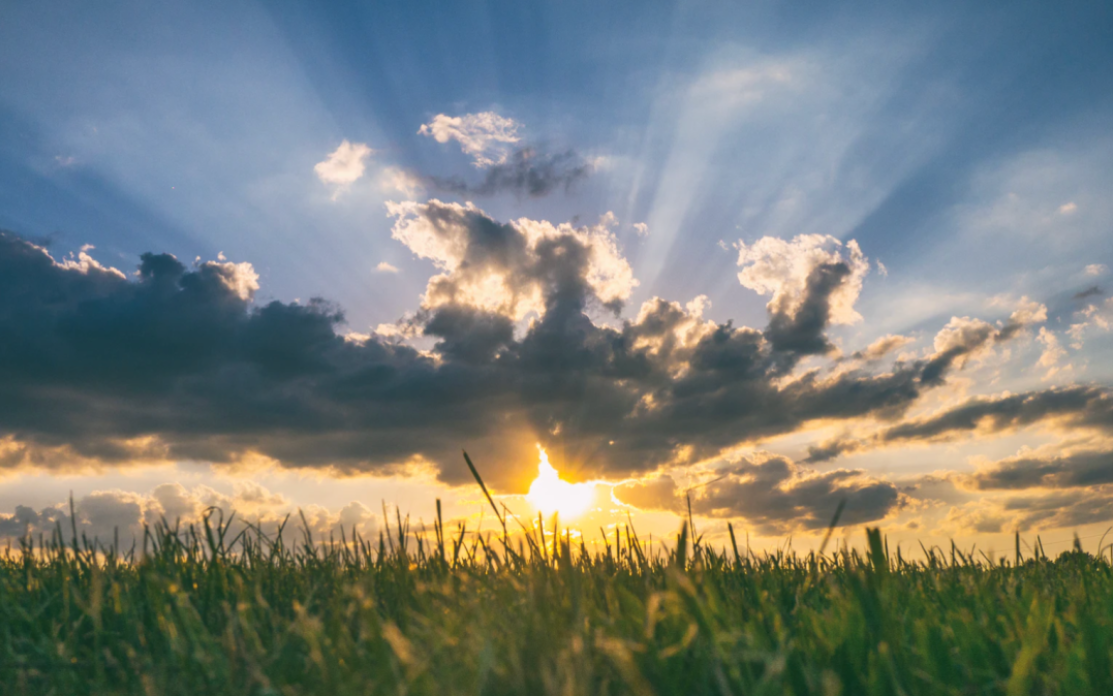To say that this pandemic has dramatically changed the way we move in the world would be an understatement. For many, it has also changed the way we live our lives. Since March 2020, it’s safe to say that almost everyone has experienced firsthand the power of nature to help soothe troubled souls and minds. Even those who used to think of themselves as nerds or “couch potatoes” are beginning to understand how important spending time outside the house is to keeping us healthy.
But there is one fact that is often overlooked. In addition to the benefits to your emotional life, connecting with nature can bring incredible positive changes to your body, making time spent in nature a powerful natural medicine that I happily prescribe to all of my patients. Spending time in nature is a pillar of good health – along with a good night’s sleep, natural foods, and plenty of exercise – and can make you feel as good or as bad as you want now and later in life. Why is nature so important to us humans? Read on and get out there!

We start outdoors.
Going back thousands of years, when most of our conversations consisted mainly of grunts and gestures, we lived outdoors 24 hours a day. Sure, our Stone Age ancestors hid in caves and sloping staircases to avoid pesky predators, but four walls and 24-hour air conditioning weren’t on their menu. Outside was in. “Then, with the industrial revolution and desk jobs, we started working and living indoors, and since then, we’ve basically parked our cars indoors.”
The more time spent indoors, the more disease.
All that indoor living, as cozy as it may seem, doesn’t give us many benefits. Whether you work from home or in an office, most of us spend 80 -90% of our day indoors, immersed in a myriad of indoor air pollutants. It’s easy to see how working at a desk all day drains a lot of energy. In contrast, a day hiking in a lush forest will leave you feeling pleasantly exhausted, calm and relaxed. Too much indoor living, among other things, weakens the immune system, increases susceptibility to infections, disrupts the sleep-wake cycle, encourages poor health habits such as excessive use of electronics, overeating, alcohol abuse, and self-medicating, as well as reduces the body’s ability to absorb vitamin D, which cannot be produced without sunlight exposure. Without enough vitamin D, our bodies lose the ability to strengthen bones, curb inflammation, and prevent cancer – all of which are detrimental to your long-term health outlook.
And think about the psychological impact of indoor living. Staying indoors for long periods of time tends to increase feelings of isolation, anxiety, and psychological stress. Simply put, indoor living has a detrimental effect on both physical and mental health.
Nature is part of our (metaphorical) DNA.
Studies have shown that spending time in nature is almost inherent in our genes. The National University of Singapore (NUS) conducted a large-scale study looking at the amount of time identical twins spent in natural environments. The study found that the twins had similar levels of desire for nature, suggesting that “love of nature” is a heritable trait that may be inherent in all of us to varying degrees.
But what if this desire isn’t part of your genetic makeup? Get out there anyway! It’s been proven that we tend to be healthier physically and mentally when we spend more time in the natural world, so I say indulge every day, no matter what the weather. Not quite sold yet? If you’re living your best post-epidemic life, do an experiment and try locking yourself inside for a few days to see how quickly your mood deteriorates and your energy drains – jump from there to one of those muscle-free “hover chairs” made famous in the movie Robotech. No thanks.
Spending time in nature can help relieve stress and anxiety.
Go for a walk, it’s great. Going into a wooded park or forest is even better. Studies have shown, for example, that spending 90 minutes in nature, as opposed to an urban environment, not only promotes the release of happy hormones, but also inspires feelings of awe and wonder, which reduces the risk of depression. Unsurprisingly, this calms the nervous system and triggers the release of oxytocin, the “love” hormone that promotes trust and connection. Another study found that people who took a 90-minute walk in nature were less likely to reflect negatively on themselves – a risk factor for depression – than those who walked in an urban environment. A study from the University of Essex went even further and found significant differences between those who walked in country parks and those who walked indoors, with those who walked in green spaces almost universally reporting an escalation in mood, while those who walked indoors showed a marked decline in well-being.
Activate your killer t-cells, even if you’re far from a park.
Don’t you have a real forest near you? When you can’t find real wilderness, free yourself from the weight room at the gym and find as much “green exercise” as you can. Hop on a local bike path or trail; try your hand at urban gardening; take an outdoor yoga or fitness class; rent a kayak and paddle on a local pond or lake; or even take a walk in the rain to feel closer to the natural elements. What’s more, the outdoors is great for awakening your senses – eyes, ears, touch and smell – so much so that research suggests that aromatic chemicals released by plants such as flowers, grasses and trees may play a role in jump-starting the immune system’s prized cancer-fighting “killer t-cells,” while reducing the number of cancer-fighting “killer t-cells” in the immune system. “in the immune system, while reducing the expression of pro-inflammatory molecules.
Another benefit of doing more outdoor exercise? It’s just more enjoyable and greatly reduces the boredom induced by spending hours on a hamster wheel on a treadmill. Exercising outdoors enhances the feeling of being less strenuous, adds to the pleasant distraction of changing landscapes, and also connects you to soothing natural soundscapes such as chirping birds, rustling trees, and crunching leaves underfoot – so while you’re more fully engaging with the benefits of nature, unplug your earplugs! –or at least unplug one.
Nature helps you overcome deadly circumstances.
Leave the light bulbs behind and step outside into the natural light to absorb nature’s most profound natural physiological stimuli. For starters, being outdoors helps regulate and maintain your circadian rhythm (a.k.a. your “biological clock”), which regulates your heart function. By being active in this light for 30-40 minutes a day, the benefits add up to a reduction in health risks, with a 35% reduction in the risk of heart disease and stroke, and a 40% reduction in the risk of type 2 diabetes. If you ask me, I’d say this is an incredible thing to do in your outdoor activities that can make the difference between long-term vibrant health and being stricken with chronic disease. Want to know why I prescribe nature to everyone?
Nature makes your brain happy and healthy.
While we may be a little late to the outdoor party in North America, other cultures have been mandating time spent in nature for years. In Sweden, the term “being close to nature” is so ingrained in daily life that the government offers tax breaks to citizens to encourage nature-based practices, which we suspect also helps to reduce costs to the national health system. In Japan, traditional ‘forest bathing’ is a daily self-care practice, immersing oneself in the peaceful, meditative atmosphere of the natural world. In Scotland, where appropriate, doctors are encouraged to prescribe outdoor activity into their treatment plans – seeing it as a natural ‘wonder drug’.
As well as simply lifting your mood, it’s important to recognize that time in nature isn’t just about fun and games – it can actually kick-start your parasympathetic nervous system, lowering cortisol levels, while also giving your prefrontal cortex – usually the over-busy brain’s control center – a boost. overly busy control center of the brain – a much-needed break. The transition from overstimulation to bliss fills you with the “positive energy” of a typical state of tranquility; mental fatigue is relieved and creative inspiration emerges. So when the stress of work starts to mount, taking a break outside, even if you only have a few minutes to spare between Zoom calls, will help reset your mind and body, improve your mental performance, and give it a quick refresher to help you get through the rest of the workday.

5 Unusual Ways to Bring Out Your Divine Nature.
Yes, taking a little time to get back to your true nature is necessary, but how can you say no when it feels so good to do so and is so good for your health? In addition to exercising, hiking, and basking in nature, here are some ways you can enjoy the outdoors more year-round:.
1) Reconsider going out at night.
Got friends? Then drag them out – don’t go out. Instead of going out for drinks and dinner, go for a walk, or a hike in the woods, or look at antiques at an outdoor market. You can have a drink or a bite to eat on the way if you like, but it’s better to get out and stay out as long as possible. Unless it’s snowing or raining, fresh air and fresh food is a great alternative to huddling together in a stuffy restaurant.
2) Save the living room for January.
During an epidemic, we’re all used to entertaining outdoors. While some enjoyed it more than others, it taught us a lesson, even if we didn’t always feel it. While it’s easy to entertain during the warmer months, you don’t have to go back indoors as soon as the kids go back to school. Get Pandemic’s fire pit out, keep the deck chairs nearby, add some cozy blankets, and keep the outdoor life going over the holidays.
3) Go to the beach in the off-season.
In the winter, almost any non-tropical beach offers pristine beauty, solitude and serenity. Combined with hard sand and no one on it, this makes off-season beach time perfect for long walks, listening to the gentle waves lapping against the shore, and enjoying the sight of sun-dappled ocean and birds flying in the wind. We’re talking about nature at its most mind-blowing.
4) Think like a Finn.
Finland is known for its long, dark, cold and snowy winters. It’s also known for being just as dynamic in winter as it is in summer, regardless of the weather. As the Finns say:- “There is no such thing as bad weather, only bad clothes.” “In other words, dress warmly no matter what, stay active and keep your mind sharp until the sun comes back around April.” Ski, snowshoe, snow bike (yes, that’s a thing!) , taking a walk in nature, booking a trip to see the Northern Lights, jumping into the freezing cold ocean between saunas, whatever it takes to avoid the myriad downsides of winter hibernation.
5) Ask yourself, what can I do outside today?
If you have to put it on your Google calendar, then do it. Make time for outdoor activities. Come up with errands you can walk to instead of drive to; start growing some tomatoes in your backyard; join a bird-watching club or a cleanup group – anything that gets you to spend time outdoors every day will work. If motivation isn’t your strong suit, join a local MeetUp group or try Hike it Baby, a group hike for parents and caregivers with children. Sign up for a beginner’s hike with a group like the Sierra Club, Latin American Outdoors, or the Natural Leaders Network. Another bonus? You’ll make some new friends in the process, too!



